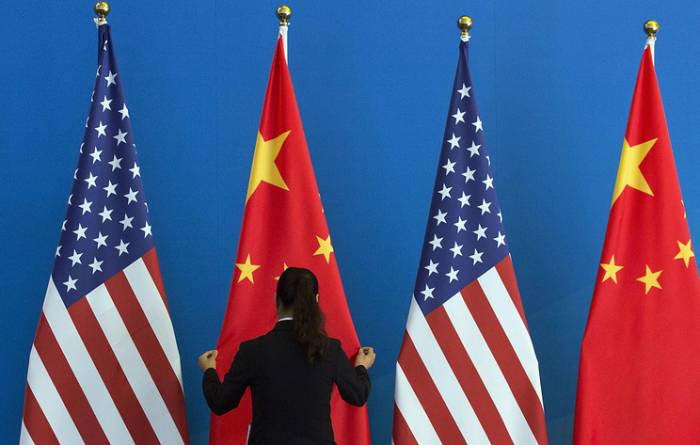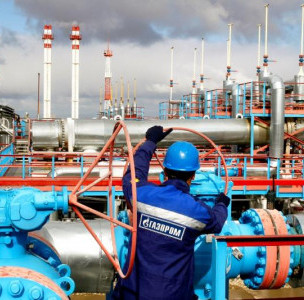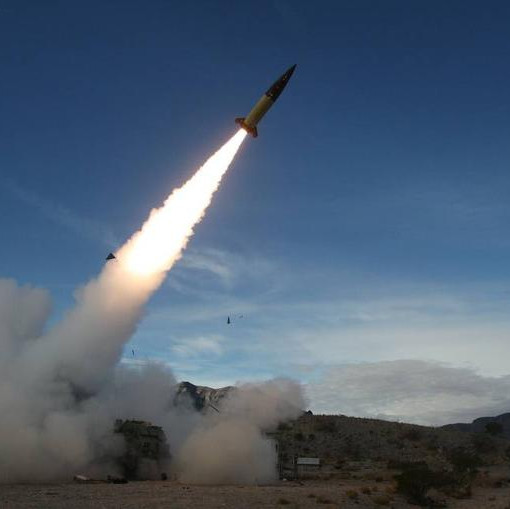
© TASS
In case of Taiwan "invasion" by the Chinese army, the United States will send its troops to defend the island, President Joe Biden promised in an interview with CBS the day before. He made a similar threat in spring, but his assistants later clarified their boss was misunderstood. This time, the American president made it absolutely clear: unlike it’s been in Ukraine, he will send his soldiers to fight in Taiwan.
Official Beijing was not slow to respond to Biden's statement. Such rhetoric violates the One China principle and "and sends a seriously erroneous signal to Taiwanese separatist independence forces," Chinese Foreign Ministry spokeswoman Mao Ning stressed. "We will never tolerate any activities aimed at splitting the country, and reserve the choice to take all necessary measures."
The head of the Chinese Foreign Ministry himself also reacted to President Biden's latest statement on Taiwan. Thus, in an interview with former US Secretary of State Henry Kissinger, Wang Yi said Washington's actions against Taiwan challenge the three joint Sino-American communiques, and inflict damage to relations between Beijing and Washington.
Earlier, we note, Chinese President Xi Jinping said “no country has the right to act as a judge on the Taiwan issue.” His statement came after the US Congress passed a bill empowering Taiwan to claim Washington’s military assistance worth $4.5 billion.
Indeed, tensions around Taiwan escalated after US House Speaker Nancy Pelosi visited the "island of discord" on August 2 to 3 followed by several US congressmen, causing Beijing’s undisguised anger. And last Friday, September 16 saw a CNN correspondent, referring to CIA Deputy Director David Cohen, report that "Chinese President Xi Jinping has told his military that he wants China to have the capability to take control of Taiwan by force by 2027." Does all of this mean that a small island in the Pacific may become a battleground of the two superpowers?
Experts' opinions differ in this regard. Some believe Beijing won’t take on with Washington, limiting itself to economic actionы alone. Others warn against a direct military clash. In any case, everyone agrees that any decisive actions on the part of Beijing are highly unlikely before the twentieth Congress of the Communist Party of China due in October this year. Primarily because Chinese President Xi Jinping needs to retain his position, and he will hardly embark upon drastic steps in his country’s relations with the United States.
No prize for guessing that Washington is constantly provoking Taiwan to declare independence, as clearly demonstrated by Nancy Pelosi and US congressmen having visited the island, as well as the President’s latest statements. But there are also people in America who understand that in case of a direct conflict with China, Russia and its powerful armed forces will definitely side with it. No small matter. This causes fear among the clear-eyed American people.
Notably, the USA has not reached any consolidated decision on Taiwan because of the complex procedure. In this regard, a peaceful scenario cannot be ruled out, i.e. a meeting between Xi Jinping and Joe Biden. After all, China has always been leaving the door open, as its diplomatic pattern stipulates a permanent negotiation process.
A Global Times commentary piece also does not provide any message of China’s probable response to America's next challenge. Thus, Zhang Shengjun from the Institute of International Studies only predicted that the United States would face severe punishment for provocations. "Washington's plan is doomed to failure. Instead of tearing China away from Russia, the United States is consolidating their alliance, which will only grow stronger amid intensified US-Chinese confrontation," the CPC’s mouthpiece quotes the expert as saying.
Nevertheless, China is watchful itself, strengthening its armed forces, especially the Navy, and realizing that the Pacific may become the key theater against the United States. The Chinese Navy is one of the world’s largest and capable of completely blocking Taiwan if desired. An assessment to this effect came from US Seventh Fleet commander Vice Admiral Karl O. Thomas, when asked about the above-mentioned statement by President Biden. China produces ships at an "impressive pace," while the United States lacks shipyards, Thomas complained in an interview with The Wall Street Journal. He also praised increased coordination of China’s various types of troops, including the airborne and naval forces. "They are more joint than they were a year ago, three years ago, five years ago," the vice admiral pointed out.
Moreover, Beijing is currently seeking to coordinate its further steps with other countries. For instance, security issues were raised last week at the SCO summit in Samarkand, particularly by Russian President Vladimir Putin and Chinese President Xi Jinping. And on Monday, September 19, Beijing hosted consultations with Secretary of the Russian Security Council Nikolai Patrushev.
The attendants certainly discussed the Taiwan issue and contemplated a joint position of Moscow and Beijing. At least, following the meeting between Patrushev and Yang Jiechi, a member of the Political Bureau of the CPC’s Central Committee, the parties are known to have expressed concern over the US-caused escalation in the Asia-Pacific region. His colleague Guo Shengkun noted when talking with Patrushev that Beijing is ready to promote a new comprehensive security concept together with Moscow.
Apparently, Moscow and Beijing are ready to stand together against Washington's aggressive policy in the international arena, including the Taiwan issue.









